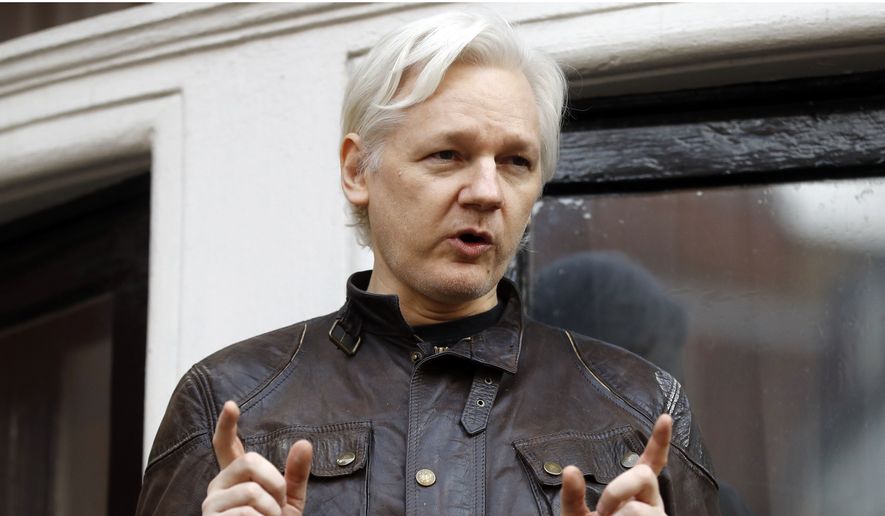A British judge on Tuesday upheld an arrest warrant for WikiLeaks publisher Julian Assange, averting again a ruling that could have opened the door for his exit from Ecuador’s Embassy in London more than five years since seeking asylum inside.
Ruling from Westminster Magistrates’ Court, Senior District Judge Emma Arbuthnot disagreed with attorneys for Mr. Assange, 46, and said it remains in the interests of justice to pursue legal action against the self-exiled WikiLeaks chief.
“It is certainly not against the public interest to proceed,” Judge Arbuthnot wrote in her 10-page ruling Tuesday, dealing the second major blow in as many weeks to attorneys attempting to broker Mr. Assange’s safe exit from Ecuador’s Embassy in London.
Mr. Assange entered the Ecuadorean Embassy in 2012 in lieu of being extradited to Sweden where he was wanted for questioning in connection with allegations of sexual assault. He was under house arrest when he walked into the embassy, however, and British authorities have argued that he should be arrested for having allegedly jumped bail by entering.
Attorneys for Mr. Assange claimed that the U.K.’s argument is moot since Swedish prosecutors called off their rape probe in 2017, but Judge Arbuthnot ruled otherwise on Feb. 6, spurring a second, multi-pronged legal challenge rejected during Tuesday’s hearing.
Mr. Assange’s attorneys had argued that his ongoing stay inside the embassy amounts to arbitrary detention in violation of international norms, citing a 2016 United Nations Working Group report largely dismissed Tuesday in Westminster Magistrates’ Court.
“I do not find that Mr Assange’s stay in the Embassy is inappropriate, unjust, unpredictable, unreasonable, unnecessary or disproportionate,” the judge wrote in her latest ruling. “For reasons which must be clear I give little weight to the views of the Working Group.”
Mr. Assange’s attorneys also cited their client’s health condition as reason to drop the arrest warrant and allow him to safely exit the embassy and seek medical treatment, albeit unsuccessfully.
“Mr. Assange’s health problems could be much worse,” Judge Arbuthnot ruled Tuesday.
Mr. Assange tweeted that he was “surprised” by the ruling and that he had three months to appeal.
The subject of a U.S. Department of Justice investigation since 2010, Mr. Assange previously said he fear’s he’ll be extradited abroad if arrested by British authorities and subsequently charged in connection with publishing classified documents on his WikiLeaks website.
Attorney General Jeff Sessions previously called arresting Mr. Assange “a priority.”
• Andrew Blake can be reached at ablake@washingtontimes.com.




Please read our comment policy before commenting.